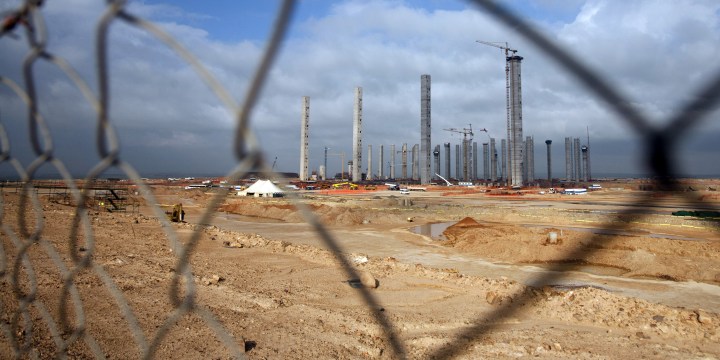SITE DISRUPTION
Daylight robbery — construction mafia uses procurement policy muddle to take its cut

Linked to organised crime networks and politicians, the mafias that bedevil South Africa’s construction industry have been a thorn in the side of the sector, raising the risk of doing business, while costing the economy billions.
Construction mafias began their shake-downs 15 years ago at the building sites of the Medupi and Kusile power stations. That was the warm-up act for the main shows that took centre stage after 2017 regulations required 30% local participation in public works construction projects.
These are among the takeaways from a 19 July webinar on South Africa’s construction mafias hosted by Creamer Media. Linked to organised crime networks and politicians, such mafias have been a thorn in the side of the labour-intensive construction sector that raise the cost and risk of doing business while inflicting huge economic damage including job losses.
Public Works Minister Sihle Zikwalala reiterated comments he made in June that such mafias have cost the economy R68-billion because of their impacts on almost 200 projects. He said 605 cases have been opened in relation to the issue, but there are widespread complaints that the police are well behind the curve on this front.
“We’ve been involved in site disruption cases since 2008, 2009. It first reared its head in respect of the Eskom Medupi and Kusile contract where both projects were heavily plagued by massive amounts of disruption,” Euan Massey of MDA Attorneys, which focuses on the construction and technology sectors, told the webinar.
“What seemed to add fuel to the fire was the release of the 2017 procurement regulations which legislated the 30% requirement for local participation. Unfortunately, a particular sector of society grabbed hold of these regulations and decided to make the most of it and there is uncertainty in the regulations which has allowed them to do that,” Massey said.
Preferential Procurement Regulations hold that any public works project worth over R30-million requires 30% local participation, but that is vague.
“It has created uncertainty around the word ‘local’. There is a large misunderstanding in our society regarding the word local. Is it South African, is it provincial, is it related to the area adjacent to the site? That has allowed these mafia-like organisations to extort money from contractors,” Massey said.
And while such rules do not apply to private-sector projects, Massey said it was effectively a red rag to extort from such building sites, even for services that are not rendered.
In other words, 30% is 30%, finish and klaar.
“The impact is felt mostly by SMMEs especially the women-owned entities as they are at the bottom of the food chain,” said Kile Mteto of the advocacy non-profit group SA Women in Plumbing and Trades.
One can imagine that in the culture of toxic masculinity that is a common feature of mafias worldwide, women and businesses owned by women would shamefully be a target.
There is also a link observed between politicians and such mafias, especially at the local level which is regarded as a hive of corruption and service delivery failure.
“We are seeing more politicians being involved, especially at local government where you find that some of these criminals in fact pitch up at construction sites to talk to contractors with the councillors,” said Gregory Mafokeng, Vice President of Organised Business at the Black Business Council.
Massey said the construction sector could take a few cues from the mining industry, which has also been the target of similar intimidation.
“We can probably learn something from the mining industry who have also been plagued by a similar phenomenon but have taken it head on. And the mines themselves have implemented processes whereby they are involved with the local communities around the mines and identified opportunities for local participation. The local communities in turn have acted against these criminal elements,” he said.
Gold Fields for example has maintained it stood its ground against attempts by local extortionists to muscle money out of the company’s solar plant project at its South Deep mine in western Gauteng. And a decline in protests in the northeastern limb of the platinum belt in Limpopo and Mpumalanga has been attributed to the mining sector’s outreach to local communities and better policing.
This is a threat to the economy that has yet to be nipped in the bud. But the things that enable it, such as a vague policy framework, and measures that seem to be paying dividends such as the mining sector’s community engagement, provide some guideposts to addressing it. DM



















 Become an Insider
Become an Insider
Hi Ed – the 2017 regulations under the Preferential Procurement Policy Framework Act, referred to in your article, were replaced on 16 January 2023 with new regulations following judgments by the SCA and Constitutional Court (Min of Finance v Afribusiness). The new regulations do not include local content requirements. Note however that the draft Public Procurement Bill (published in May 2023) contains watered down local content provisions.